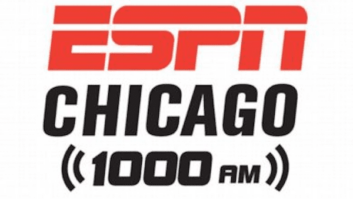As a Radio World reader in the unique position of being a broadcaster, a music publisher, a songwriter and even a recording artist, I’m here to interject my 2 cents’ worth into the matter of payments to artists by broadcasters who air their recordings, realizing that what I say may be worth just that.
Let me pose a few questions, some of which may not have been considered but may be material:
1. If a recording artist performs live on radio, whether paid or gratis, is he entitled to a performance royalty?
2. If his backup musicians are merely that, are they entitled to a royalty?
3. If his backup singers are merely that, are they entitled to a royalty, and if so, what should it be compared to any backup musician’s royalty rate?
4. Do we want to assume that any procedures also apply to television broadcasts?
Here we must note that the record label doesn’t figure in the equation in the case of a live performance. Yet we must acknowledge that artists appearing on radio or TV no doubt have recording deals and are plugging songs they’ve recorded. This is commonplace.
Consequently, I’d conclude that whether a song is performed live or “canned,” on radio or television, the artist and his diskery are compensated adequately by the effect of the airplay on the sale of his records, to say nothing of the promotion provided for the artist’s personal appearances, including tours.
5. What about those musicians and singers backing up the artist on-air, live or canned, who don’t share in royalties, even if they are permanent performers on his recording sessions, personal appearances and tours? Are they entitled to broadcast performance royalties?
6. If they are entitled to royalties, who will keep the business records and who will receive the payments to distribute to these people (provided they can be located years after the performances aired)?
It’s my conclusion that those performers who have no arrangement with the recording artist or his diskery to participate in royalties from the sale of the artist’s recordings are not entitled to royalties.
I further feel that while a name recording artist’s work is indeed ”unique and extraordinary” (typical and necessary showbiz contractual term), such designation does not apply to those who function with him yet have not been contractually entitled to a share of proceeds from the sale of records or of the “box office” in the case of non-broadcast live performances.
7. Does anyone remember the so-called Music Performance Trust Fund instituted by a once-powerful A. F. of M., wherein the diskery was obliged to pay a percentage of the musicians’ recording-session wages to a trustee who supposedly would hire them and pay them to perform admission-free concerts?
The purpose for extracting this “tribute” was to compensate “sidemen” for the loss of live-performance opportunities occasioned by the sale of records. We all now know that records actually provided more session income for the sidemen than it took away from live performances, and records even encouraged audiences to patronize the venues where their favorites were performing live.
Which brings us back to what has been the traditional “tacit arrangement” between record labels and their artists, to which we must add the well-entrenched, broadcaster-music publisher arrangement.
In the latter instance we know that the copyright law provides that a songwriter and his publisher are to be compensated for every commercial use of a musical work (yet not for spoken-word recordings, which are non-musical, although spoken-word recordings may qualify for grand-rights compensation). Since records are now copyrighted, does the law for songs apply to recordings of those songs?
Apparently, the thinking is that it does not but should. I was recently asked by the National Academy of Recording Arts and Sciences, of which I am a life member, to visit our solons in Washington to lobby for payment by radio broadcasters to recording artists. In all good conscience I could not do it.
You see, the vast bulk of the NARAS membership consists of musicians and industry persons who are not receiving royalties for their work under any contractual arrangement. As I’ve opined above, those who are getting royalties from the record labels are adequately compensated as it is; while those who aren’t … needn’t be.
Oliver Berliner
Bozman, Md.












